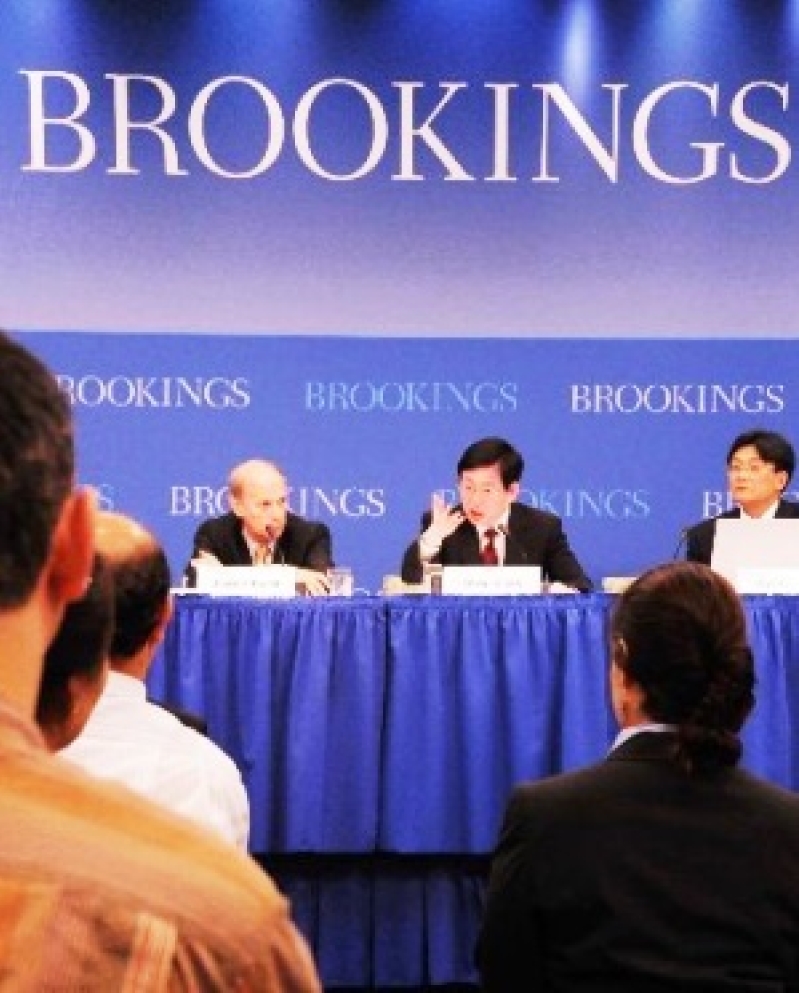
About a week ago, a delegation of leaders of the five major religions in China concluded their visitation to the United States. This is China’s first interfaith religious delegation to visit America formally. According to China Central Television (CCTV), this U.S. visitation-interfaith representative is the most important delegations sent by China following the interfaith delegations sent to participate in the millennium religious leader’s conference in 2000. This visitation received wide-spread attention from people of all background, including religious figures, academic scholars, politician, and average citizens.
The delegation of leaders of the five major religions in China received an invitation from three American Baptist organizations. Arriving on Sept. 4, the delegation met with U.S. religious leaders, political leaders, business leaders, media and scholastic representatives for dialogue in order to acquire a mutual understanding during their 12 day-visit to the Los Angeles, New York, Atlanta, and Washington D.C..
The delegation consists of Rev. Gao Feng, president of China Christian Council, Rev. Kan Baoping, executive director of China Christian Council; Dr. Ding Changyun, director of China Taoist Association; Adilijiang Ajikelimu, vice president of Chinese Islamic Association; Dr. Jing Yen, public affairs director of Buddhist Association of China; Rev. Chen Shujie, vice president of Chinese Catholic Patriotic Association; and Mr. Wang Zuoan, deputy administrator of State Administration of Public Affairs.
While they were in Atlanta and Brookings Institute in Washington, the delegation held a seminar, Religion in China: Perspectives from Chinese Religious Leaders, introducing the present developments, religious policies of the five major religions in China, and discussed the issue on how religion can be become the contributing factor in building a harmonious society.
According the China Press in the United States, Wang, consultant of the delegation of leaders and the deputy administrator of the China State Administration of Religious Affairs, said, “Issue of religion has become a focus and concern for both China and United States” and “The purpose of this delegation aims to explore the possibilities of further discussion on religions issues between the two nations.”
Since the reform and opening 30 years ago, China has been undergoing tremendous changes. Economic developments can be easily identified through the growth in Gross Domestic Products and the increase number of skyscrapers rising up in Shanghai. In addition to economic, social, and political changes, the evidence of religious change is the rapid increase in the number of believers from just two million in 1979 to over 16 million or even more practicing Christians today, the consultant of the delegation team said.
“In recent years, the Chinese government has made its priority to the implementation of religious policy. The attitude of common Chinese people towards religion tends to be rational and objective. The social environment is increasingly free for the development of religion,” said Wang. “President Hu Jintao recently clearly pointed out that religious workers and believers can exert a positive role in promoting the economic and social development in China. This means that the leadership of China has a more positive attitude toward religion.”
“In fact, religions in China are playing a positive role in guiding the individual and family life and in constructing a system of values and social morality. All of these contributions are appreciated by the Chinese government and different circles of society.”
“Literally, the word Brookings shares similar meeting with the famous Chinese couplet: ‘The sea can hold the water from thousands of rivers, it is big because of its capacity. A person is great when he can be tolerant and forgiving of many other people,’” said Wang. “It is necessary to have an inclusive and open minded spirit within a country. Similarly, such a spirit should be advocated within the international community.”
Wang further stated that “The founding of the United States was closely related to its ancestors’ pursuit of religious freedom. For this, we understand and want to pay our respect. Nevertheless, in a world without stability, what is the most precious is to learn how to coexist peacefully, how to adjust to changes in the spirit of tolerance and how to remove hatred and cease conflicts through effective communications and dialogue.”
Furthermore, Feng, leader of the delegation of representatives, expressed that the religious cultures, philosophy and economics and other relevant fields can all be a positive source of contribution towards a harmonious society, and this holds true with the premise that religions promote social harmony, such as loving the country and the religion, obeying the law, keeping current with the times, upholding moral integrity and social services, and being tolerant and peaceful.
During their visit to the four major cities throughout the states, the delegation of leaders met with many U.S. religious leaders and those from the scholastic fields engaging in dialogues. They’ve met with former U.S. president Jimmy Carter in Atlanta, during which they shared with one another their opinions and thoughts about Sino-U.S. religions, Sino-U.S. relations, and other relevant issues. Also, while they were in Washington D.C., they met with the officers of the U.S. department of States, U.S. Congressional members, Washington-based think tank scholars, and local religious leaders.
[Editor's note: reporter Ruth Wong from San Francisco contributed to this report.]






